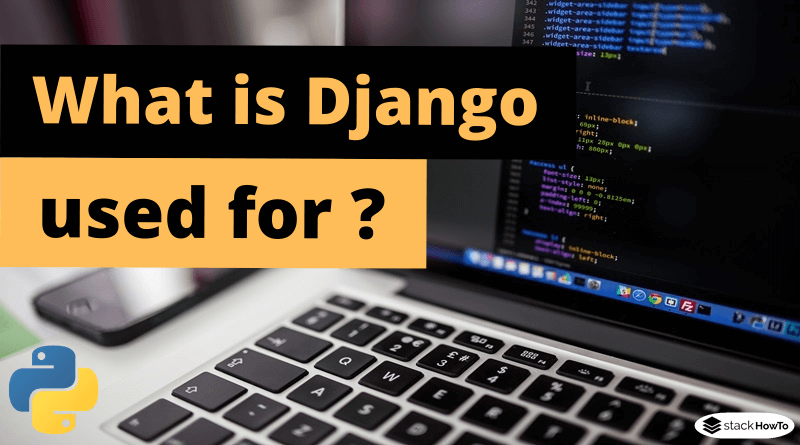What is Django used for?
If you’re interested in running Django or considering a transition to Python, let us help you explore the basics of using this framework. But before we get started, let’s talk briefly about what Django is and why you should care about it.
Django was released in 2005 and has become one of the must-have web frameworks for web developers. It was created as a framework based on the Python programming language. With the right set of features, Django reduces the amount of trivial code that simplifies the creation of web applications and results in faster development.
Now, let’s take a look at the pros and cons of Django.
The advantages of Django
Here are the most important reasons why you should choose Django for your website.
1. Written in Python
If you’ve ever seen code in Python, you’ll notice that Python is very easy to read, and that’s the philosophy behind creating Python.
In addition, Python is quite powerful and is used in the implementation of high-level scientific computations and artificial intelligence, which gives Django immense backend support.
2. Accelerates the development of custom Web applications
Django is one of the most mature web frameworks for Python. Its design rules are largely focused on reducing the development time of web applications. The features provided by Django allow developers to quickly create custom web applications based on different business requirements. A large number of Python programmers even opt for Django when they have to meet both goals and deadlines.
3. Django follows the “Batteries-included” philosophy
Django is one of the web frameworks that adopt the “Batteries-included” philosophy. When developing a custom web application, Django provides the resources required by developers ready to use. It provides code for common operations such as database manipulation, HTML templates, URL routing, session management and security. The “Batteries-included” approach helps developers to reduce development time considerably.
4. Supports MVC model
Django, like other web frameworks, supports the MVC (Model-View-Controller) model. The MVC model allows programmers to keep a web application’s user interface and business logic layers separate. The approach further helps programmers simplify and accelerate the development of large web applications by separating their user interface and business logic layers. Django also allows programmers to reuse the same business logic across multiple projects.
5. Provides robust security features
The built-in security features provided by Django help developers protect web applications from a variety of attacks – cross-site scripting, SQL injection, etc. At the same time, the web framework improves the security of web applications by avoiding common security errors associated with coding in Python.
6. Scalable
Django has been designed in such a way that it can handle any type of hardware. This advantage is the main reason why the world’s most visited sites like Instagram, Pinterest, Disqus, etc. use the Django framework.
Conclusion
In case you still have doubts about the Django framework, you can give it a try. Django is definitely a must-have for any programmer. And if you don’t feel like you’re getting anything, the Django community is always ready to help.





